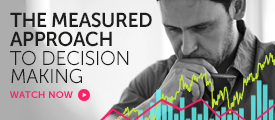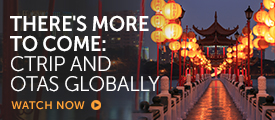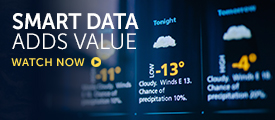According to a report by CIMA; ‘72% of organisations admit to at least one strategic initiative failing in the last three years as a result of flaws in their decision making process.’
It is said that we make 35,000 decisions a day. In a fast evolving business day, we need to have enough confidence in our information and processes to make decisions quickly. In the longer term, important strategic changes need to be considered and implemented carefully, as our experts discuss in these videos:
Our industry is changing fast, in hospitality, time sensitive data can now be used to update strategies on the fly. But investing in the technology to do this is in and of itself a big decision to make and even a good idea can be badly actioned.
The report ‘Joining the dots: decision making for a new era’ from CIMA (Chartered Institute of Management Accountants) surveyed board-level executives at large organisations. In the survey, 80% of respondents said flawed information has been used to make strategic decisions.
Technology and data, when set up carefully, can be the competitive advantage that makes a significant difference to your business. With so much data coming through it is important it is systemized and ordered well but 36% of executives say their organisation is not coping with information overload. There is debate over how useful ‘big data’ is, with 37% saying it has helped and 32% saying it has made things worse.
Another factor in good decision making, identified by the report, is communication. 43% said their level of trust in fellow executives needed improvement and 57% said more active collaboration was required.
If you’ve been sent to this page and you’re not yet on the circulation list to receive these regular briefings and you would like to sign up, you can do see here. It’s free.
Video clips produced by ybc.tv for the Hospitality Channel, including interview from industry conferences such as the IHIF conference as well as specific Hospitality Channel shoots.


